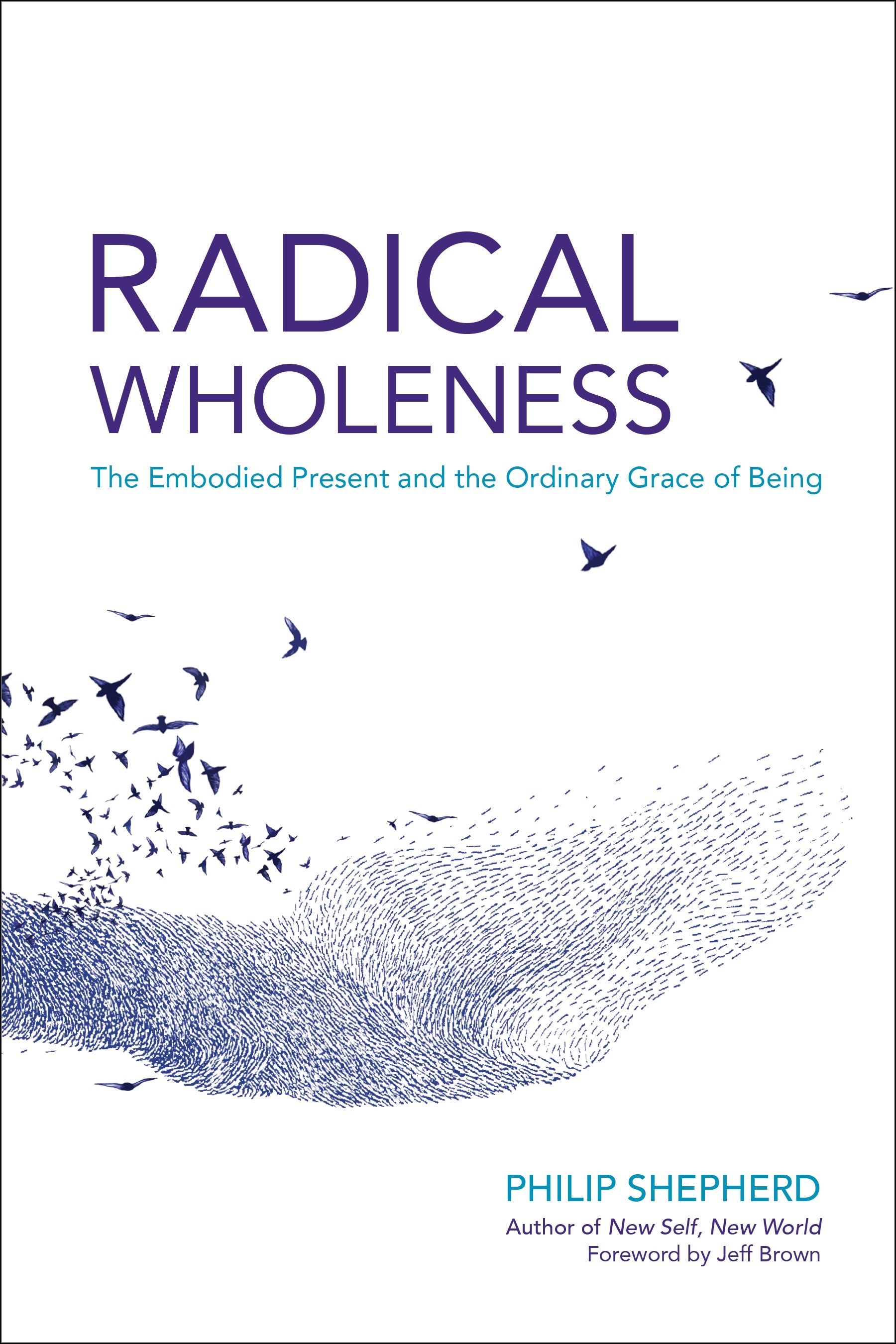
## Metadata
- Author: [[Philip Shepherd]]
- Full Title: Radical Wholeness
- Category: #books
## Highlights
- at what we call ‘self-organization’ to appreciate that the term is inadequate. The Story encourages us to find underlying causes within a boundary—but what we call ‘self-organization’ doesn’t happen just within the self, independent of the whole.
We find one example of this in what we commonly believe to be the ultimate self-organizing unit of the self: the DNA molecule. It was long thought to contain the blueprint for who we are, but we now understand that genetic information arises from a collaboration between DNA and protein enzymes. In fact, as Clive Cookson said of genes:
one can almost regard them as devices for extracting information from the environment. The “expression” of genes … is influenced by events going on outside the body, to an extent that would have seemed inconceivable until very recently
- In our culture, the challenge of liberating the body’s energy into the coherence of the Present requires that we make peace with ignorance. There cannot be wholeness without it.
Ignorance can be thought of in many ways, but in this context it is simply the possibility of discovery—insofar as you know something, there is nothing to discover. Ignorance is anathema to the supervisor: if he doesn’t know what to do, how can he supervise? So we run from ignorance in order to safeguard our supervisory role. We know what emotions are appropriate and expected in most circumstances, and tend to supervise their arrival. We also know when certain emotions are inappropriate, and put them on hold.
- Social interactions easily fracture wholeness because they involve so many triggers that can reroute you into ‘prescribed behavior’.